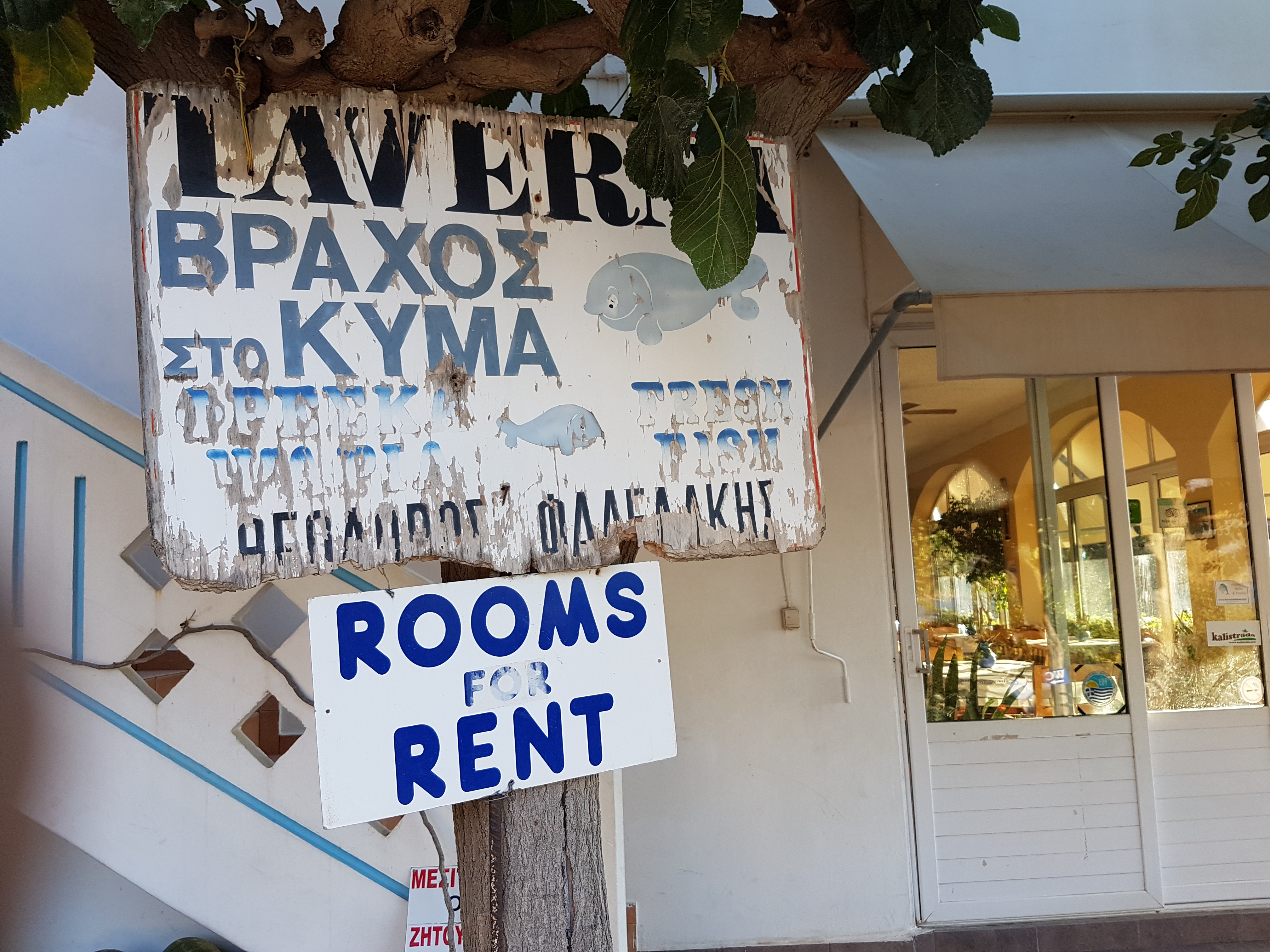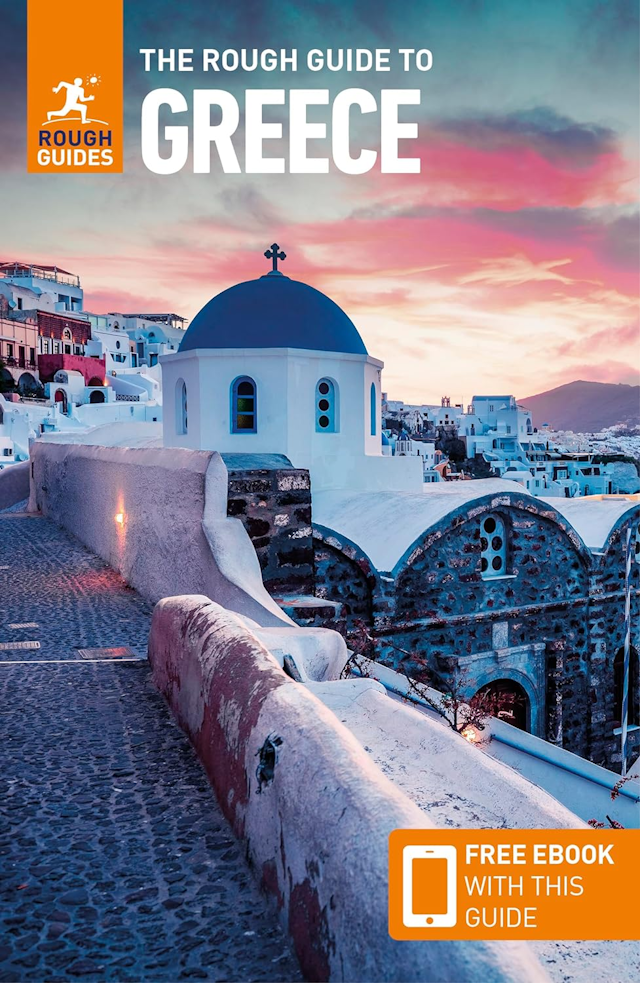- HOME
- SPEAK GREEK
Learn to Speak Greek
Greece Travel Secrets brings advice and a free ebook on how to learn to speak Greek for your vacation, including information on Greek culture to aid conversation.

If you learn to speak Greek, even just a little, will enhance your experience of visiting Greece enormously. There’s no question of it. Greece is an unusual and historic language, which few non-Greeks ever learn, so people really appreciate it even if you only learn a few simple words, like ‘please’ and ‘thank you’.
Learn to Read Greek
Of course you’ll want to learn more than that, such as
learning numbers and being able to read the Greek alphabet, and it isn’t as
hard as it might at first look. At first glance, you might think you don’t know
where to begin when you see Greek letters written down:
α β γ δ
But that is simply:
a b c d
And three of the four letters look like their English equivalents anyway.
Learn to Speak Greek
As for pronunciation, the Greek alphabet starts like this:
Alpha, beta, gamma, delta
So you already know the first four letters of the Greek
alphabet, to both read and speak. How hard can it be?

Free ebook
To help you with learning to speak Greek, we’ve put together
an ebook for you to read and study. You can download it to your phone or tablet
and take it with you to Greece, to help you with speaking Greek.
Note, this is NOT a book which you have to sit down and study, remembering word after word, as we did at school. We think you’ll be much more inspired to learn to speak Greek if you understand the culture and etiquette of the Greek language, the kind of things you say and when you say them. After all, words and idioms are different in different cultures. Even little things. When do you say ‘good afternoon’ and when does it change to ‘good evening’, and then to ‘goodnight’?
You can download the free book as a PDF here:
Conversational Greek for Travelers
If you have a Kindle and would prefer your copy on there, then you can buy it cheaply on Amazon:
Greek Alphabet
Here's one bit from the book, to get you started - the Greek alphabet, how it's written and how it's pronounced.
- Alpha (Αα):
Pronounced as "ah" (as in "father").
- Beta (Ββ): Pronounced as "v" (as in "vine").
- Gamma (Γγ): Pronounced as "gh" (as in "ghost").
- Delta (Δδ): Pronounced as "th" (as in "the").
- Epsilon (Εε): Pronounced as "eh" (as in "bed").
- Zeta (Ζζ): Pronounced as "z" (as in "zebra").
- Eta (Ηη): Pronounced as "ee" (as in "see").
- Theta (Θθ): Pronounced as "th" (as in "thin").
- Iota (Ιι): Pronounced as "ee" (as in "see").
- Kappa (Κκ): Pronounced as "k" (as in "key").
- Lambda (Λλ): Pronounced as "l" (as in "love").
- Mu (Μμ): Pronounced as "m" (as in "mother").
- Nu (Νν): Pronounced as "n" (as in "now").
- Xi (Ξξ): Pronounced as "ks" (as in "box").
- Omicron (Οο): Pronounced as "o" (as in "open").
- Pi (Ππ): Pronounced as "p" (as in "pen").
- Rho (Ρρ): Pronounced as "r" (as in "red").
- Sigma (Σσς): Pronounced as "s" (as in "sun").
- Tau (Ττ): Pronounced as "t" (as in "table").
- Upsilon (Υυ): Pronounced as "u" (as in "put").
- Phi (Φφ): Pronounced as "f" (as in "fun").
- Chi (Χχ): Pronounced as "kh" (as in "loch").
- Psi (Ψψ): Pronounced as "ps" (as in "psychology").
- Omega (Ωω): Pronounced as "oh" (as in "go").
Discussing Weather and Travel Experiences
As another taster for the ebook, here's the section on Discussing Weather and Travel Experiences
One of the most common topics of conversation when traveling to Greece is the weather. Greeks are known for their love of discussing weather conditions, and it can be a great way to start a conversation or make small talk with locals. In this subchapter, we will explore some basic Greek phrases and vocabulary related to weather, as well as how to discuss and share your travel experiences.
When it comes to weather, Greeks often use simple phrases such as "It's hot" (Zesti), "It's cold" (Kryo), or "It's raining" (Vrechi). These phrases will come in handy when asking or describing the weather during your trip. Additionally, it's useful to know the names of the seasons: spring (Anixi), summer (Kalokairi), autumn (Fthinoporo), and winter (Xeimoni). You can use these words to ask questions like "What is the weather like in summer?" (Poso einai to klima to kalokairi?) or to describe your own experiences, such as "I love the colors of autumn in Greece" (Mou aresoun ta xromata tou fthinoporou stin Ellada).
In addition to discussing weather, sharing travel experiences is a great way to connect with locals and fellow travelers. You can use phrases like "I visited" (Episkeftika), "I saw" (Eida), or "I enjoyed" (Echasa) to describe the places you have been to or the things you have done. For example, you can say "I visited the Acropolis and it was amazing" (Episkeftika tin Akropoli kai itan ekpliktiko) or "I saw the sunset in Santorini, and it was breathtaking" (Eida tin dixromatiki apogevma stin Santorini kai itan apistefto).
Remember to be open and curious about the experiences of others as well. Ask questions like "Have you been to Athens?" (Echete paei stin Athina?) or "What is your favorite Greek island?" (Poia einai i agapimeni sou Elliniki nisi?). This will not only help you improve your Greek language skills but also create meaningful connections with the locals.
In conclusion, discussing weather and travel experiences is an important aspect of any trip to Greece. Learning basic Greek phrases and vocabulary related to weather will enable you to engage in conversations with locals about the climate and seasons. Sharing your own travel experiences and being curious about others' adventures will help you connect with the Greek culture and create memorable experiences during your visits to Greece
Latest Posts
-
Explore Vikos Gorge: Hiking, Rafting, and Food in Zagori
One of the most impressive canyons in Europe and one of Greece’s favorite mountain destinations, Vikos Gorge invites hikers and food lovers alike. -
Lefkada: The First Ancient Theater of the Ionian Islands Comes to Light
The first ancient theater ever discovered in the Ionian Islands is located in the heart of the ancient city of Lefkada, established before the end of the 7th century BC. -
5 Epic Island Hikes in Greece for Spring Explorers
This spring, five majestic peaks across Greece’s islands invite us to lace up our boots and discover a wilder side of island life. -
Greek Ferry Services to Halt on May 1 Due to Labor Strike
Ferries in Greece will remain docked for 24 hours on Thursday, May 1, as the Pan-Hellenic Seamen’s Federation (PNO) joins Labor Day mobilizations announced by the General Confederation of Greek Labor… -
Sifnos: Greece’s Hidden Culinary Star on the Rise
Sifnos, a Cycladic island, is gaining fame for its rich culinary heritage, especially the beloved melopita honey-cheese tart. -
Easter in the Mystical Castle of Monemvasia
In the castle town of Monemvasia, with its dramatic medieval backdrop and sea views, Easter is a deeply spiritual and atmospheric experience. -
Easter in Leonidio: A Tapestry of Light, Culture and Cliffs
In Leonidio, Easter comes alive with handmade hot air balloons in the sky and lanterns made from bitter oranges in the streets. -
The Lesser-Known Traditions of Greek Easter
Step off the beaten path this spring and discover the enchanting — and often surprising — Easter traditions found across Greece. -
April 9 Strike in Greece to Impact Public Transport, Ferries and Air Travel
Transportation and travel across Greece will face disruptions on Wednesday, April 9, as public transport, ferry and aviation workers join a nationwide strike called by Greek labor unions. -
Ancient Theater of Lefkada Brought Fully to Light Following Systematic Excavation
The Greek Culture Ministry has announced that the first ancient theater ever identified in the Ionian Islands has recently been brought fully to light on Lefkada, revealing an impressive monument that…




